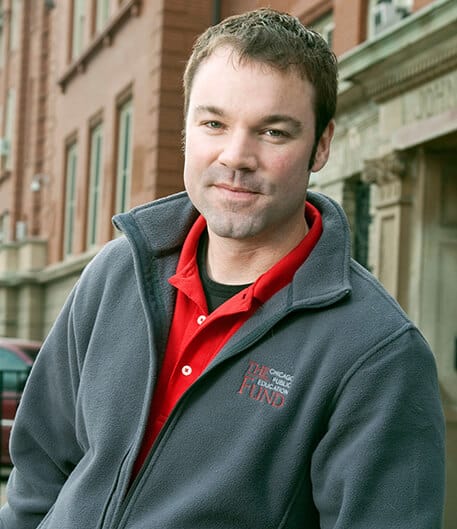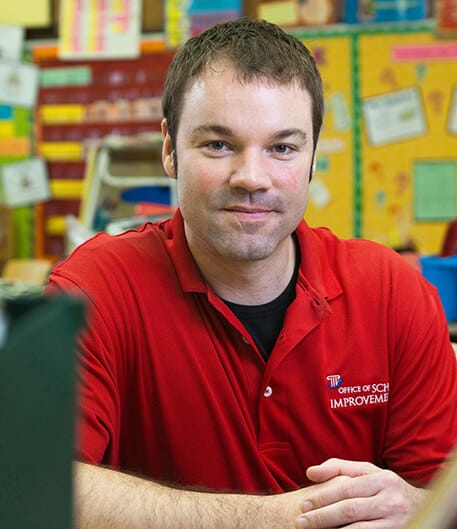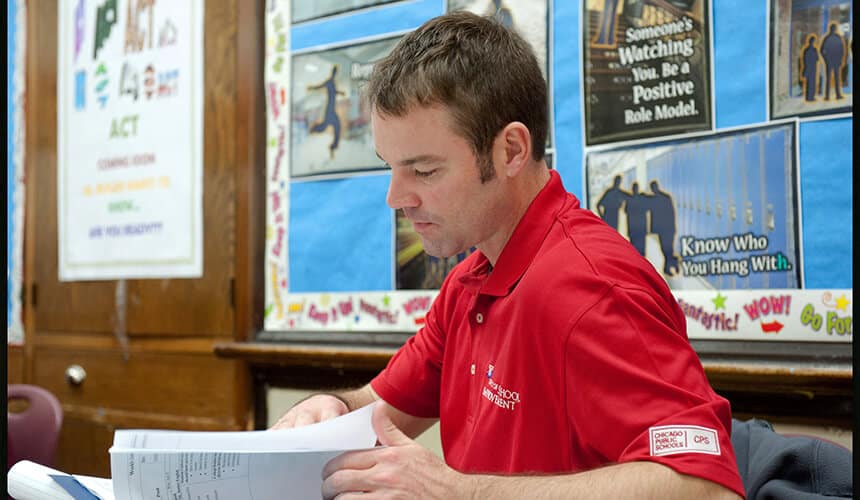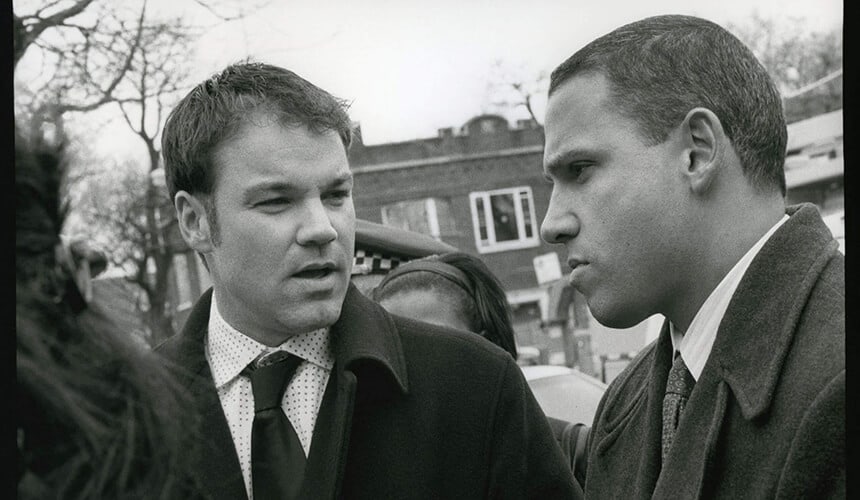Don Fraynd
Bold Reformer

Photo by Lloyd DeGrane.
The decades-long debate about school reform drags on, but Donald Fraynd PhD2004, who earned his doctorate in educational administration, has developed some bold solutions that work. Using research begun during his PhD program, he led an award-winning Chicago high school as a principal and then moved on to a visionary effort for the Chicago Public School (CPS) district called the Office of School Improvement.
Fraynd’s model focused initially on decreasing misconduct, increasing attendance, involving parents more, and changing the school’s culture and climate. The model has been controversial, but Fraynd points to results at Harper High School in Chicago. After one year, student attendance increased from 54.4 percent to 70.1 percent, serious misconduct dropped from 1,100 to 226 incidents, and the percent of freshmen on track to graduate rose from 53 percent to 79 percent. The reform model has since been implemented in 15 more schools over the years.
“We have achieved great success for some of the nation’s most vulnerable students,” says Fraynd, who was a 2012 Forward under 40 Award recipient. He and his team were regarded as national pioneers and heralded by experts in publications such as the Wall Street Journal. The U.S. Department of Education used the CPS model for its multi-billion-dollar school-improvement grant program.

Photo by Lloyd DeGrane.
Building on this success, Fraynd has moved on to a new venture. After working to improve the nation’s toughest schools, he concluded that the single most important factor for success is hiring quality teachers. This prompted him to cofound TeacherMatch, a company that is building a research-based teacher-candidate screener that Fraynd says will radically increase the likelihood that new teacher hires are strong.
TeacherMatch has added more than 120 school districts over four years, and Fraynd says that research indicates that teachers hired using the program grew student skills “at much faster rates” than those hired by conventional means. Ongoing research with the UW–Madison Value Added Research Center, Intel, the University of Chicago, and a number of other partners makes the tool stronger each year, he says, creating the potential for an even greater impact on schools across the nation.
 87° F
87° F
